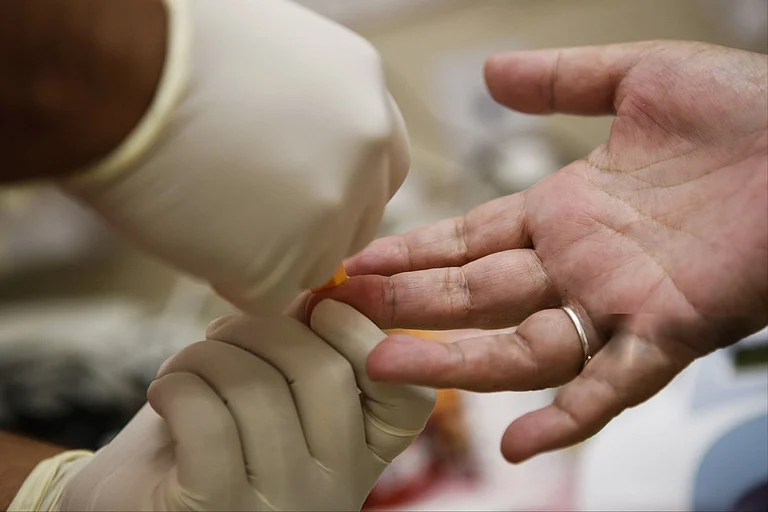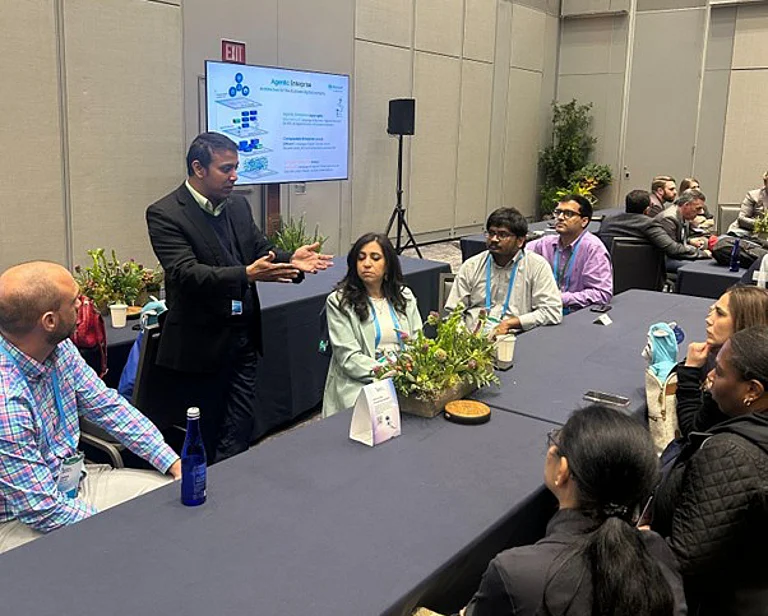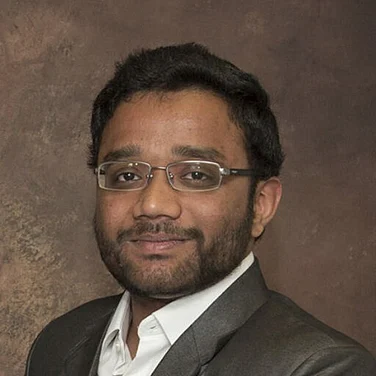As India's healthcare landscape undergoes a significant transformation, the challenge of affordability remains a critical barrier for millions. We recently spoke to Dr. Pruthvinath Kancherla, Co-Founder of Affordplan, to discuss how his company is leveraging technology and financial innovation to make healthcare affordability accessible to all. From the strategic shifts post-MBO to the pivotal role of the Swasth digital wallet, Dr. Pruthvinath provides an insightful perspective into the future of healthcare financing in India.
1) What trends do you see shaping the future of healthcare affordability in India?
India is at an inflection point where the convergence of technology and finance is reshaping healthcare. Despite significant progress, most healthcare expenses are still paid out-of-pocket, creating stress for families and affecting timely care decisions. This is exactly the gap Affordplan was created to solve. As we see the rise of digital health infrastructure like ABHA, broader adoption of UPI-based payments, and increasing comfort with digital wallets and BNPL models, there is a huge opportunity to transform how patients plan for and manage healthcare spending. At Affordplan, we see our role as turning these macro trends into practical, patient-facing solutions that allow families to access care without hesitation and hospitals to receive assured, timely payments.
2) Post-MBO, how has your strategic vision for Affordplan evolved? Are there areas you're now prioritizing differently?
The MBO was a defining moment for Affordplan; it gave us full ownership of our mission and the freedom to sharpen our focus. Our commitment to making quality healthcare more affordable remains the same, but we are now pursuing it with a sharper eye on sustainability and scale.
Post-MBO, we are focusing on making the patient journey smoother and more predictable, from consultations to pharmacy purchases, while working closely with hospitals to remove bottlenecks that create financial stress for patients. We are investing in features that encourage patients to stay engaged with their care, access preventive services, and return for follow-ups without the fear of unpredictable costs. Our vision has expanded from offering financial solutions to creating a connected experience where patients can plan, pay, and benefit from their care in a way that feels transparent and supportive.
3) Swasth—the digital wallet platform for OPD, IPD, labs, and pharmacies—was highlighted as a key innovation in late 2023, having delivered cost savings to families. How central is Swasth to your current roadmap?
Swasth is a big step in bringing our vision to life, it works like a physical concierge and platform, connecting OPD/IPD payments, diagnostics, pharmacy spends, micro-insurance, wellness offers, free medicine delivery, and lab sample collection into a single, seamless experience. But Affordplan has always been about more than just one product. Swasth is an important part of our roadmap, yet our focus remains on building a complete affordability ecosystem, from driving hospital-patient engagement to launching new solutions that make healthcare access easier, predictable, and more rewarding. Swasth helps anchor this journey, but the bigger goal is to create a platform where every patient touchpoint is supported by Affordplan’s mission.
4) What are some common out-of-pocket expenses that patients encounter when seeking medical care? How does Affordplan help users manage and reduce these out-of-pocket costs?
One of the biggest challenges in healthcare is that costs often arrive all at once. A person might start with an OPD consultation, then be asked to get diagnostics done, buy medicines, and sometimes even make an admission deposit, all in the same day. These unplanned, upfront expenses can create anxiety and, for some, even delay care. This is exactly the problem Affordplan set out to solve.
By connecting every patient touchpoint through our Swasth platform, patients can earn benefits on every transaction, access wellness offers, get free medicine delivery and lab sample collection, and opt for micro-insurance when they need it most. The goal is not just to reduce costs but to make healthcare spending predictable and manageable, enabling patients to access timely, quality care without financial stress.
5) How can micro-insurance be a game changer for low-income families seeking healthcare?
In India, the challenge of unexpected healthcare expenses isn’t limited to low-income households it affects almost everyone. Whether it’s a routine procedure or an emergency admission, most people still pay out-of-pocket, and a single episode of care can disrupt financial planning.
At Affordplan, micro-insurance is a way to introduce predictability and peace of mind into healthcare. Many patients don’t think about insurance until they need it, so we make it simple to understand, access, and use at the right time for unexpected hospitalisations. By integrating insurance into the Swasth experience, patients can benefit from coverage without complex paperwork or delays, helping them focus on their care rather than worrying about the cost.
6) Do you foresee introducing new products or services under the AffordPlan umbrella, or expanding into adjacent healthcare-fintech verticals?
Affordplan has always been about solving the real challenges that can make people delay or avoid care. Our focus is on making healthcare more accessible and predictable for patients across every stage of their journey. Beyond Swasth and micro-insurance, we offer preventive health programs, wellness services, through trusted partners for both planned and unexpected treatments. The goal is to create a connected ecosystem, not just standalone products, so that patients can access the care they need without financial stress, while also encouraging consistent engagement with their care journey. In addition we are focusing onbringing together preventive and curative aspect of care ensuring good health continuity for patients. Affordplan also plans on introducing a cost optimization arm that will help service provider streamline purchase decisions.
7) What are some of the biggest challenges patients face when it comes to healthcare financing?
One of the biggest challenges is unpredictability. Most people do not budget for medical expenses, so when illness or emergencies occur, they may need to dip into savings or borrow at high interest. Out-of-pocket costs can be substantial, and insurance coverage is still limited, with claim processes often complex and intimidating. Healthcare loans are still emerging with the larger Indian population not being credit worthy. NPAs reported by lenders in healthcare tend to be higher making repayment a big roadblock in turn making access to credit for healthcare difficult.
These factors can delay care, create stress, and affect health outcomes, making financial planning for healthcare an important yet difficult part of everyday life.
8) How do you view the evolving competitive environment in healthcare-fintech? Have you recalibrated your positioning or differentiators post-MBO?
For us, it has never been about competition but about solving the real challenge of making healthcare spending more predictable and accessible. Nearly half of India’s health expenses are still out-of-pocket, and this is the problem we remain focused on.
Post-MBO, our vision is sharper. Our offerings are co-curated with the care provider to remove barriers to care access. This continues to be our biggest differentiator. This also help us drive more differentiated and customised benefits for patients based on opted specialty. For instance, Affordplan Swasth now offers product for Maternity, Fertility & Geriatric amongst other specialisations.
9) AffordPlan's mission is to make quality healthcare more affordable and equitable. How has the MBO reinforced or reshaped that mission?
The MBO has reinforced our focus on one of India’s biggest challenges, 47.1% of health spending is still out-of-pocket, pushing nearly 55 million people into poverty every year*. Affordability determines whether people seek care early, follow through with treatment, or delay it altogether.
Our vision is to make healthcare more predictable and continuous helping people engage with care proactively and complete their treatment journeys while also creating smoother, more consistent pathways for care providers. This focus builds a more balanced healthcare ecosystem, where quality care becomes sustainable for patients and those delivering it.
About Dr. Pruthvinath Kancherla, Co-founder
Dr. Pruthvinath Kancherla, an alumnus of Deccan College of Medical Sciences and Parkway College of Nursing & Allied Health, brings extensive healthcare experience, including leadership roles at Global Hospitals, India’s first comprehensive multi-organ transplant centre. He now applies his expertise to make healthcare affordable for millions of Indian families. Dr. Pruthvinath Kancherla, Co-founder of Affordplan, is a healthcare leader dedicated to transforming affordability and access in India’s healthcare system.


























